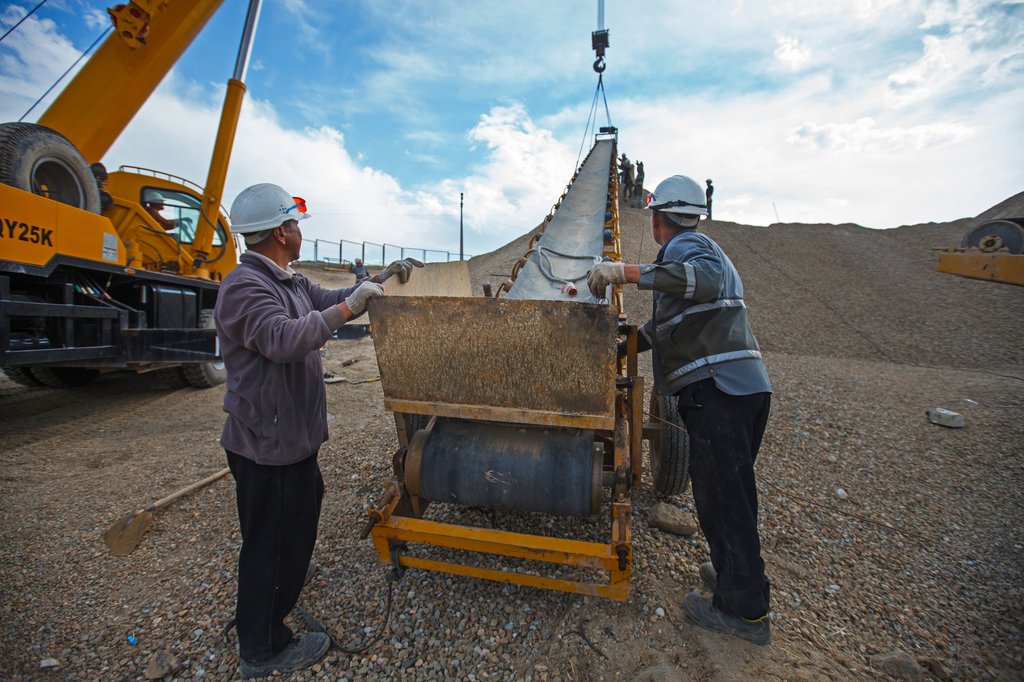Extractive companies have had adverse impacts on a broad array of human rights, such as resettlement of communities without adequate consultation and compensation; environmental degradation and its effects on health, sources of livelihood and access to clean water; as well as charges of forced labor, rape and even extrajudicial killings by security forces protecting company assets, with some cases meeting the legal definition of corporate complicity.John Ruggie, Former UN Special Representative on Business and Human Rights
Natural resources are at the beginning of every supply chain. Their development is essential to the production of energy, consumer goods and food. This means that there are high stakes involved in their use, development and depletion. Natural resources can therefore be a great source of wealth for both governments and local communities, and bring benefits to all citizens. In practice, however, investments in oil, gas, coal, minerals, renewable energy, and large-scale agriculture are often entwined with human rights abuses. This is particularly the case in some of the world’s poorest – but most resource-rich – countries. Under the UN Guiding Principles on Business and Human Rights, it is the responsibility of the companies developing these resources, as well as their buyers and investors, to safeguard the human rights of workers and communities affected by their activities.
In this “Big Issue” area, discover sector-specific analysis, initiatives and news coverage.
BHRC opinions and reactions
Just energy transition
Just energy transition principles for human rights in business and investment
Impacts of the global climate crisis are multiplying quickly, and particularly for Indigenous and marginalised communities. But the transition cannot come at their expense. A just transition to clean energy must centre on three core principles: shared prosperity, human rights and social protection, and fair negotiations.
Shared prosperity models and Indigenous leadership for a just transition
News and resources from Indigenous Peoples Rights International and the Business and Human Rights Centre exploring the significant opportunity of Indigenous co-ownership of renewable energy projects, for an energy transition that is fast, just and equitable.
Shared prosperity in renewable energy
Use this portal to explore projects and cases exploring benefit sharing and community ownership models in the renewable energy sector – and how they can be implemented in a rights-respecting manner; through positive examples, best practices as well as challenges and opportunities to learn from them.
Research and publications
Transition Minerals Tracker
Tracking the human rights implications of the mineral boom powering the transition to a low-carbon economy
Stop and listen: Pathways to meaningful engagement with rightsholders in the global rush to mine for transition minerals
This report emphasises the critical importance of meaningful community engagement in the rush to extract transition minerals for renewable energy. It highlights how inadequate or ignored public participation, particularly in vulnerable communities, can lead to social unrest, legal disputes and project delays, ultimately undermining the energy transition efforts.
Strategic projects for whom? Challenges and local realities of the European Union's strategic mineral projects
BHRC and partners looked at the 13 proposed CRMA strategic projects outside of the EU, including their selection process by the European Commission, along with how their current and future impacts on communities and the environment will be managed, listening to the voices of local communities living in the vicinity of the proposed projects. We examined the policies – or lack thereof – of companies proposing the projects as well as information on past and potential social and environmental harms associated with the companies that operate these projects.
Exploring shared prosperity: Indigenous leadership and partnerships for a just transition
The report explores benefit-sharing and co-ownership models with Indigenous Peoples, highlighting that no universal approach exists. By recognising Indigenous Peoples as equal partners and respecting their rights, including free, prior and informed consent (FPIC), the report addresses the potential benefits and challenges of achieving a just energy transition.
Renewable Energy and Human Rights Benchmark 2025
A rights-respecting renewable energy sector is vital if we are to deliver a fast and fair energy transition. Our fourth global Renewable Energy and Human Rights Benchmark examines the human rights policies and practices of 35 of the largest wind and solar developers and manufacturers.
Investing in renewable energy to power a just transition
Investors should influence the development of a renewable energy industry that respects human rights, including through its mineral supply chains
Digging into the problem: How corruption facilitates socioenvironmental, human rights, and Indigenous Peoples’ rights harms in the mining sector
This report published by NRGI, BHRC, the SIRGE coalition and WWF highlights how corruption fuels the social, human rights and environmental harms of mining, particularly in transition minerals and gold. It underscores the urgent need for stronger governance, corporate accountability, and policies that prioritise people and nature over vested interests.
Regional briefings
Explore our latest regional briefings, looking at business and human rights challenges in the extraction of transition minerals and in the deployment of renewable energy projects across diverse geographies.

